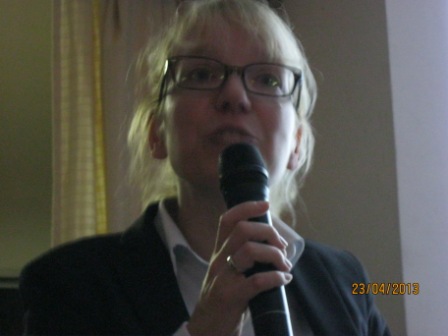The Talk
Are China and India friends or foes? Views within China on India are far from uniform on this question. Sometimes they may appear to converge on specific topics, such as the border or the Indian Ocean, but among the general Chinese populace, India remains an abstraction. Knowledge of and concerns over India are often distant from the realities in which these two countries’ interests increasingly intersect and mirror one another. Work on India has long been the purview of a select few within the analytical communities within China. China and India remain locked in a stagnant embrace when it comes to the most intractable of security dilemmas: the Sino-Indian border issue. Yet, a closer look at Chinese and Indian military, scientific and academic experts’ security perceptions vis-à-vis one another reveals that there is much more to the Sino-Indian security dynamic than meets the eye. Chinese and Indian strategic analysts hold divergent interests when evaluating each other’s military modernization, the former preoccupied with India’s naval development and the latter with China’s army. Technical analysts in each country share a similar level of interest in the other’s aviation and aerospace programs. Experts with a more scholarly bent exhibit a strong, if not symmetrical, level of focus on the other country’s nuclear strategy and status. This talk provided both a quantitative and qualitative analysis of each of these groups’ perceptions.
PS : This talk has no video.
Lora Salmaan, Dr
Dr Lora Saalman is an associate in the Nuclear Policy Program at the Carnegie Endowment and based at the Carnegie-Tsinghua Center for Global Policy in Beijing. Saalman joined the Carnegie Endowment under the auspices of a Stanton Nuclear Security Fellowship. Her research focuses on Chinese arms control policies and Sino-Indian and Sino-Russian strategic relations.
Saalman completed her PhD at Tsinghua University in Beijing, where she was the first American to earn a doctorate from its Department of International Relations. Her dissertation, which she wrote in Chinese, covers the impact of U.S. and European export control shifts on Sino-Indian military modernization. She was awarded the Outstanding PhD Graduate Award and the Outstanding Dissertation Award, Second Tier.
Prior to joining the endowment in April 2010, Saalman served as a visiting fellow at the Observer Research Foundation in New Delhi, a visiting fellow at the James Martin Center for Non-proliferation Studies, and a research associate at the Wisconsin Project on Nuclear Arms Control. She was also a graduate research assistant at the Monterey Institute of International Studies’ Center for East Asian Studies and Center for Non-proliferation Studies (CNS), through which she earned a one-year fellowship to work at the Division of Safeguards Information Technology at the International Atomic Energy Agency.








